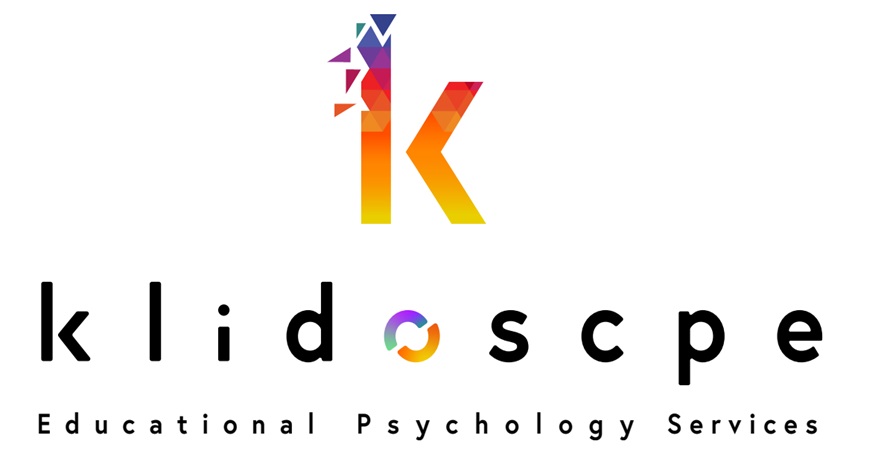
Privacy Policy
- Privacy Policy
- Who we are
- What personal information do we collect and when do we collect it?
- Why the Information is Collected and Used?
- Where do we keep the information?
- How long do we keep the information?
- Who do we send the information to?
- How can I see all the information you have about me?
- What rights do you have over your data?
- Disclosure of your information:
- Link to further GDPR information:
- Complaints procedure:
Who we are
At Klidoscpe Educational Psychology Services Ltd, we are committed to being transparent about how and why we collect and use your information, ensuring you can trust that your privacy is safeguarded.
This policy explains what personal data we collect when you use our services and how we manage, store, and protect this information. The security of your personal data is guided by the British Psychological Society (BPS) Code of Conduct and the Health & Care Professions Council (HCPC) Standards of Conduct, Performance, and Ethics. In addition, we adhere to the requirements of the General Data Protection Regulation (GDPR) 2016 and the UK Data Protection Act 2018.
We may collect personal information as defined by GDPR, including data necessary to deliver our services effectively. This policy outlines how we handle your personal information when you use our services, when you contact us, and when we communicate with you.
We manage all information in accordance with data protection laws, including the GDPR and the UK Data Protection Act 2018. Keith Houghton serves as the data controller responsible for your data. If any third parties require access to your personal information, we will inform you if they are acting as a data controller or data processor, who they are, what their role is, and why your data is being shared
What personal information do we collect and when do we collect it?
Given the nature of our services, we collect and process personal data to conduct psychological assessments. We have a legitimate interest in gathering information that is essential for forming a professional opinion. The types of personal data we may collect include:
- Your name and the name of the individual receiving our services.
- Your contact details, such as postal address, telephone number(s), and email address.
- Background information provided by you through our initial questionnaire, emails, telephone conversations, or face-to-face discussions. This may include date of birth, medical information, developmental history, family circumstances, strengths and difficulties, and previous assessment reports.
- Information gathered from the School Questionnaire, which may include current academic performance and teachers’ observations on your child’s strengths and difficulties in school. This information is collected only with your consent, and you will be provided with the questionnaire to share with the school.
- Information obtained as part of an Educational Psychology assessment
Why the Information is Collected and Used?
The primary purpose for processing personal data is to conduct psychological assessments or consultations. We are required to process personal data to meet our contractual obligations for delivering these services. Your data will not be used for any other purpose, and the psychologist will only proceed with involvement once signed consent is received from the parent or guardian with parental responsibility for the child. All personal data shared with us will be processed lawfully, fairly, and transparently, strictly for the purpose of the assessment. This data processing is necessary to fulfil our agreements with schools, Local Authorities, and other settings.
The nature of the work varies based on the individual’s needs and concerns. The following are examples of activities that may be involved:
- Classroom observation
- Observation in other school settings, such as small group teaching or nurture groups
- Discussion with the Special Educational Needs Coordinator (SENCo), or head of learning/student support in Further or Higher Education settings
- Discussion with the class teacher/form tutor or other relevant school/college staff (e.g., Teaching Assistant, Mentor, School Counsellor, or Head of Year)
- Working alongside the child or young person in class, especially in early years where assessment is often conducted through play
- Individual assessment, which may involve the use of tests, questionnaires, or interviews
- Consultation with external professionals working with the parent or child/young person (e.g., speech therapists, learning support teachers)
- Review of reports or written information from external professionals involved with you or your child
- Review of school/college records, including Special Educational Needs (SEN) documentation
- Therapeutic or group work
Where do we keep the information?
Paper-based notes, questionnaires, and assessment materials are securely stored in a home office and are destroyed by shredding once the written report or record of involvement is completed. The written report will include all relevant information gathered, along with assessment findings and conclusions.
Electronic notes, reports, invoices, and emails are stored on a personal computer located in the secure home office. This computer is password protected, has an encrypted hard drive, and is safeguarded by up-to-date firewall and antivirus software.
For assessments, we use Q-Global, an online scoring system provided by Pearson Clinical. Access to this system is protected by a password and dual authentication process. The information stored on Q-Global includes the individual’s first name, initial of their surname, date of birth, and assessment date. Pearson is not granted permission to collect or use any data. Once the assessment report is completed, the individual’s details are promptly deleted.
Reports are backed up on a password-protected and encrypted portable hard drive, which is stored securely in a locked filing cabinet.
To send reports to clients, we use an encrypted email service called Egress Switch, which clients can access via a password-protected, web-based platform. Egress Switch is compliant with GDPR regulations.
Once clients receive their reports, it is their responsibility to store and share them as they deem appropriate. For organisations such as schools, universities, or assessment centres, the handling of reports will be governed by their own GDPR policies
How long do we keep the information?
All paper documents related to the assessment are securely shredded and disposed of shortly after the completion of the assessment report.
Electronic records from a child’s assessment are retained until the child reaches the age of 23 (18 years old plus an additional 5 years). This retention period allows us to provide consistent, accountable services and to maintain a clear picture of the individual’s needs and progress throughout their education and training. However, if you wish for the information to be deleted before this time, we will comply with your request
Who do we send the information to?
When a service is commissioned by a parent or student, we send the report directly to them using Egress Switch, a secure, GDPR-compliant email system. If the service is commissioned by a school, university, or assessment centre, the report is sent to the commissioning organisation, as the contract is with them. These organisations will handle the report in accordance with their own GDPR policies. We still use secure email methods, either via Egress Switch which is GDPR compliant. In rare cases, we may be legally required to provide the report to a third party.
How can I see all the information you have about me?
You can make a subject access request (SAR) by contacting the Data Protection Officer, Dr Keith Houghton. We may require additional verification that you are who you say you are to process this request.
We may withhold such personal information to the extent permitted by law. In practice, this means that we may not provide information if we consider that providing the information will violate your or your child’s vital interests
What rights do you have over your data?
Under the GDPR, parents, pupils and clients have the following rights in relation to the processing of their personal data:
- To be informed about how we process your personal data (This notice fulfils its obligations)
- To request access to your personal data that we hold and be provided with a copy of it
- To request that your personal data is amended if inaccurate or incomplete
- To request that your personal data is erased where there is no compelling reason for its continued processing
- To request that the processing of your personal data is restricted
- To object to your personal data being processed
Disclosure of your information:
We may disclose your personal information to third parties if required to comply with legal obligations, enforce agreements, or protect the rights, property, or safety of Klidoscpe Educational Psychology Services Ltd personnel or others. This may include sharing information with other organisations to comply with safeguarding requirements or other statutory regulations
Link to further GDPR information:
Please be aware that we do not have any control over the information on this site and it should only be used for additional information.
Complaints procedure:
If you have any concerns about the way we handled your personal data or would like any further information, then please contact us as outlined below.
Klidoscpe Educational Psychology Services Ltd.
Email: keith@klidoscpe.com
Website: www.klidoscpe.com
Telephone: 07872552531
By post: Hanover Buildings, 11-13 Hanover Street, Liverpool, L1 3DN
You also have the right to lodge a complaint with the UK data protection regulator, the Information Commissioner’s Office (“ICO”). Contact details are below:
First Contact Team, Information Commissioner’s House, Wycliffe House, Water Lane, Wilmslow, Cheshire, SK9 5AF. Tel: 0303 123 1113.
For further information on your rights and how to complain to the ICO, please refer to the ICO website https://ico.org.uk/concerns
